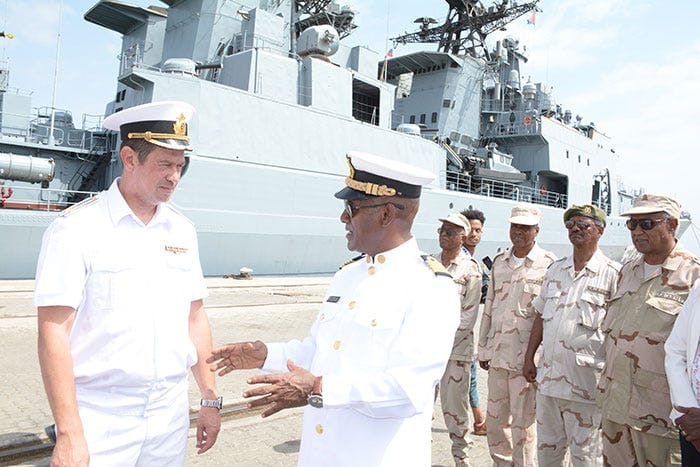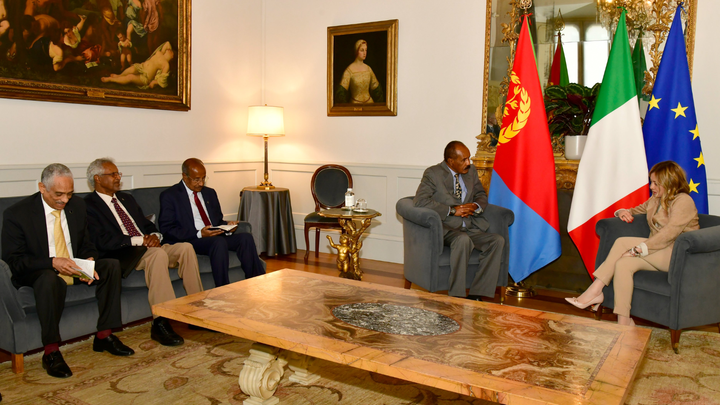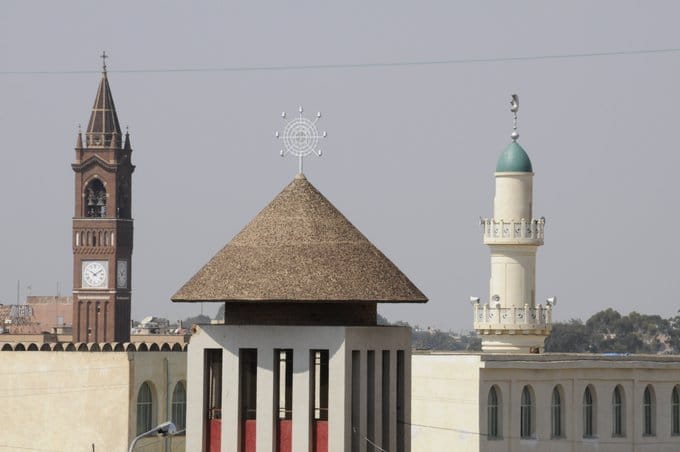Sudan's Complex Challenges: Conflicts, Refugees, and Geopolitical Competition

Sudan's Complex Challenges: Conflicts, Refugees, and Geopolitical Competition
Sudan is a country in North East Africa. It's located in the heart of Africa and borders Egypt, Chad, Eritrea, South Sudan, and Ethiopia. Sudan has been independent since 1955 when it gained independence from Britain. However, civil wars have plagued the country since then, resulting in millions of deaths and displaced people from their homes.
- South Sudan and Sudan are two neighboring countries located in northeastern Africa. They share a long history of political and territorial disputes, contributing to their complex and often volatile relationship. South Sudan gained independence from Sudan in 2011 after a long and bloody civil war that lasted over two decades.
- Darfur is a region located in western Sudan, which has been plagued by conflict since 2003. The conflict began when rebel groups, mainly from the non-Arab ethnic groups, took up arms against the Sudanese government, which they accused of neglecting their region. The government responded with a brutal crackdown, supporting Arab militias known as the Janjaweed, who targeted non-Arab civilians, killing and displacing hundreds of thousands of people. The conflict has been characterized by atrocities such as mass rape, torture, and murder, leading to widespread condemnation from the international community. Despite several peace agreements, the conflict has persisted, with ongoing violence and displacement. The region has also been affected by environmental degradation, drought, and food insecurity, exacerbating the humanitarian crisis. Efforts to address the conflict have included peace negotiations, UN peacekeeping missions, and humanitarian aid, but the situation remains complex and challenging.
- Eastern Sudan has been the site of various conflicts and disputes, including armed rebellions and tensions between different ethnic and religious groups. In recent years, there have been developments in resolving some of these conflicts. In 2019, the Sudanese government signed a peace agreement with the Eastern Front rebel group, which had been fighting for greater autonomy and resources for the region. The agreement provided for a power-sharing arrangement and addressed political representation, resource allocation, and security issues. The government also announced plans to establish a regional development fund to support the economic and social development of Eastern Sudan. However, the region has continued tensions, including clashes between different ethnic groups and disputes over land and resources. The situation remains fragile, and efforts to address the root causes of the conflicts, such as poverty and marginalization, are ongoing.
In addition to the conflicts in Darfur and Eastern Sudan, Sudan has faced several other challenges contributing to its instability. One of the main issues is the country's deep political divisions, which have been exacerbated by the influence of political Islam and the legacy of the Islamist regime of former President Omar al-Bashir. Al-Bashir, who was ousted in 2019 after months of protests, had led Sudan for three decades and had close ties to radical Islamic groups such as Al-Qaeda. His regime also implemented policies that favored Arabization and Islamization, leading to the marginalization of non-Arab and non-Muslim communities.
Another factor contributing to Sudan's instability is the conflict in the border region of Al Fashqa, which has led to tensions with neighboring Ethiopia. The dispute over the border region, inhabited by both Sudanese and Ethiopian farmers, has been ongoing for decades but has escalated in recent years due to the involvement of armed factions and the alleged involvement of Ethiopian militias.
Egypt's conflict with Ethiopia and involvement in Sudan has further complicated the situation, as the country has been accused of supporting Sudanese rebels and using the conflict to destabilize Ethiopia.
The US sanctions crippled Sudan's economy, leading to hyperinflation and widespread poverty. Although the sanctions were lifted in 2017, Sudan continues to face economic challenges, including a lack of foreign investment and a shortage of foreign currency.
These challenges have contributed to the emergence of armed factions and militia groups in Sudan, further destabilizing the country. The proliferation of weapons and the involvement of external actors, including neighboring countries and regional powers, exacerbated the situation.
Efforts to address these challenges have included establishing a transitional government in 2019, which was meant to pave the way for democratic elections and reforms. The government has also tried to address the conflicts in Darfur and Eastern Sudan and the Al Fashqa dispute. However, the situation remains complex and challenging, and the road to stability and democracy in Sudan is likely to be long and difficult.
The situation in Sudan is complicated and multifaceted. It can spark unrest in the Horn of Africa and its surrounding nations, such as Ethiopia, South Sudan, and Eritrea. What can they do and cannot do in light of this? These nations may make the crisis worse if they choose to help one side or the other.
Furthermore, international powers and actors are likely to exacerbate the situation. The Geopolitical competition, especially between the US, Europe, Egypt, and Israel on one side and China and Russia on the other, can create a sustained long-term humanitarian disaster.
In the meantime, Sudan is inundated with enormous refugee problems and internally displaced people.
Sudan has been hosting refugees from neighboring countries for decades, with the majority coming from South Sudan, Eritrea, Ethiopia, and Chad. According to the United Nations High Commissioner for Refugees (UNHCR), Sudan has millions of refugees and asylum seekers. The largest refugee population in Sudan is from South Sudan, which gained independence from Sudan in 2011 but has since been affected by ongoing conflict and humanitarian crises. As of December 2020, there were over 830,000 South Sudanese refugees in Sudan, with most living in camps. Until now, the refugees have faced numerous challenges, including limited access to education and healthcare, food insecurity, and protection risks.
These challenges were extreme when a functioning government and global organizations focused on them. However, the conflict exacerbated Sudan's refugee situation, which is complex and challenging, with limited resources and infrastructure to support many refugees.
Therefore, the Horn of Africa countries should address the root cause of the refugee crisis, such as conflicts in their respective countries, to alleviate the pressure on Sudan's limited resources.
What can the average person do to help alleviate the problems in Sudan? In today's interconnected world, money transfer services and telephone communication are essential for people and refugees to stay connected with their loved ones, gain access to critical services, and receive financial support.
Many companies offer money transfer services to Sudan. These companies can help send money to Sudan, but you should know what they offer and how much it costs.
The two main benefits of working with these companies are that they can help you send your funds faster than if you did it yourself. They can also advise and give information on how best to transfer your money to reach its destination safely and quickly.
These companies include TransferWise, a popular international money transfer service that allows transfers to Sudan; WorldRemit, Xoom, PayPal, and AZIMO services allow money transfers to Sudan.




Comments ()